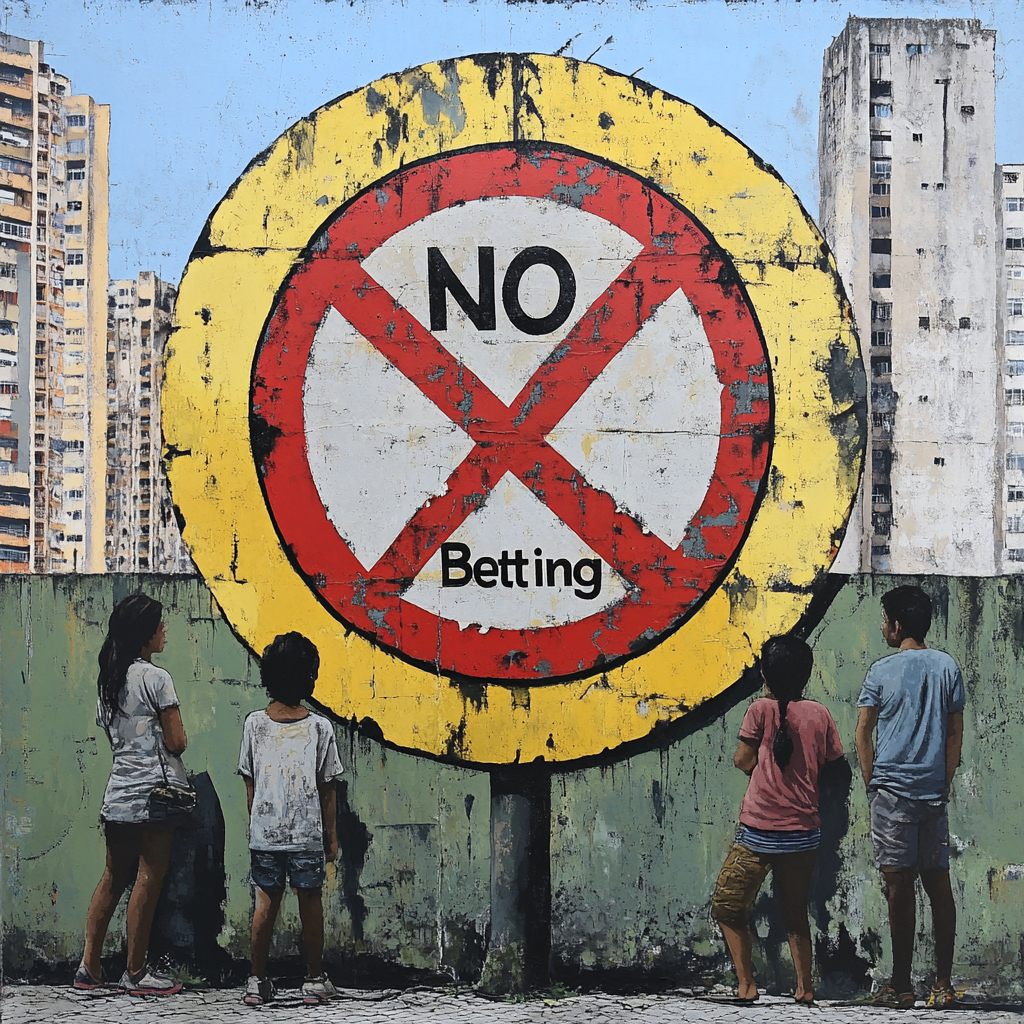
Brazil Weighs Advertising Ban to Protect Youth from Fixed-Odds Betting
In the mystical land of Brazil, where the samba never ends and the caipirinhas flow like rivers, there's a new dance in town: the cha-cha-cha of regulating gambling advertising! It all began when the wise Senator Styvenson Valentim put on his legislative tap shoes and decided that perhaps the country should protect its youth from the flashy, captivating tango that is gambling. Thus, he waltzed into the political ballroom with a bill that proposes to cut the cord on all fixed-odds betting advertising. Passed on high from the Senate’s chambers, the goal is simple: save the young souls from tumbling into the spinning roulette of impulsive betting.
Now, let me tell you, this bill is a veritable samba parade of proposed changes to Article 33 of Law No. 13,756/2018. It's a full-fledged initiative, aiming to completely banish gambling advertising from every conceivable media landscape. Out with the jingles, the flashy images, and the pseudo-glamorous endorsements—poof, all gone like carnival costumes after Ash Wednesday. If successfully implemented, no longer will Brazil’s streets be lined with billboards depicting the youthful spark of misadventure; those ads would vanish faster than a teenager's allowance at a slot machine.
But why, you ask, is Brazil pulling the brakes on this advertisement train? Well, my curious friend, it's because of the alarming youth dance marathon into the arms of gambling. In 2025, reports started swirling like the Amazonian storms that more and more young people are betting their hard-earned reality away. With smartphones acting as the dealer in a pocket-sized casino, it's become frighteningly easy for these youths to dance their way into impulsive betting. So Senator Valentim grabbed the microphone and declared, “No mas!” In a fiery speech, he pointed out how the new-age bettors predominantly consist of young folks glued to their screens, placing bets with the flick of a finger—all hours of the day and night. And frankly, that kind of digital fandango just won't do!
Of course, Brazil wasn't exactly waltzing without a care even before this proposal. Back in December 2024, when mulled wine was warming chilly hearts, the Secretariat of Prizes and Bets took the mic and crooned some restrictions. They banned the neon glow of gambling ads targeting minors, opting for a tastefully modest '18+' symbol or a “for mature audiences only” kind of announcement. It was like putting up parental controls on the nation’s collective TV set.
Adding to the medley, Senator Carlos Portinho scurried onto the scene, pirouetting additional restrictions. His moves included nixing betting ads from radio between the late-night whispers of 10 PM and the predawn musings of 6 AM. He also proposed a moratorium on splashing marketing across both printed and digital media, and an outright veto on using sports stars and celebrities to sell the dream of a jackpot win. The good senator even tangoed into tech, suggesting a wall against text messages and push notifications eagerly inviting players to the dance floor of gambling.
What’s the reasoning behind this legislative song and dance, you may ask? Well, besides fortifying young minds against the flashing lure of lucky spins, Brazil aims to soften the economic blow from gambling. Recent mandates from the adaptable Federal Supreme Court (STF) took center stage, barring the use of social welfare benefits for online games of chance. The narrative here? Using welfare funds to gamble is about as sensible as a fish joining a cycling club. The wages of whimsy are high, and the government hopes to stop vulnerable populations from footing the bill.
An interministerial working group, all dressed in gray suits and sober expressions, was assembled to tackle the grim fandango of compulsive gambling. Their mission? Prevent, assist, and educate about the pitfalls of problem gaming. They’re drafting strategies, polishing them like an overzealous saxophonist polishing their horn before the big gig. The focus is on helping communities that always seem to miss the beat when it comes to gambling's damaging effects.
As the nation twirls through these regulations, the STF's decision on the constitutionality of Brazil’s gambling laws looms like an anticipative drumroll. Mid-2025 is circled on calendars as the time when the legal crescendo will either validate or silence the floating chords of gambling practices. Meanwhile, as we count the economic melodies of tax revenue and job creation, opposition continues to hum discordant notes about gambling’s broader societal impacts.
So, as this legislative fandango unfolds, we witness Brazil taking a meaningful step in the fight against youth gambling—a problem as slippery and elusive as spotting a capybara at high noon. It’s a dance with purpose, aimed at ensuring Brazil's future generations aren’t swayed by the razzle-dazzle circus of betting.
Intrigued and ready to waltz through the labyrinthine world of gambling regulations with us? Keep abreast of all the latest news in payment solutions and more. Just hit that 'subscribe' button on our Telegram channel: @HighriskandPayments. Remember, staying informed is as rewarding as finding the rhythm on the dance floor of life.
The sponsor of this article? HighRisk.xyz, your ever-reliable partner in navigating payment solutions. Let’s twirl towards informed decisions!

